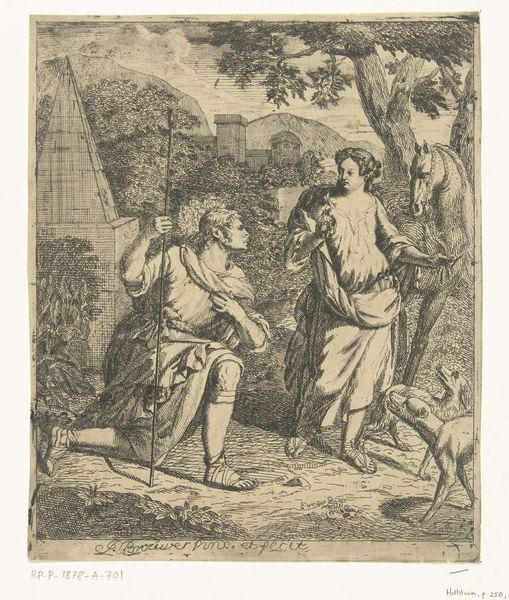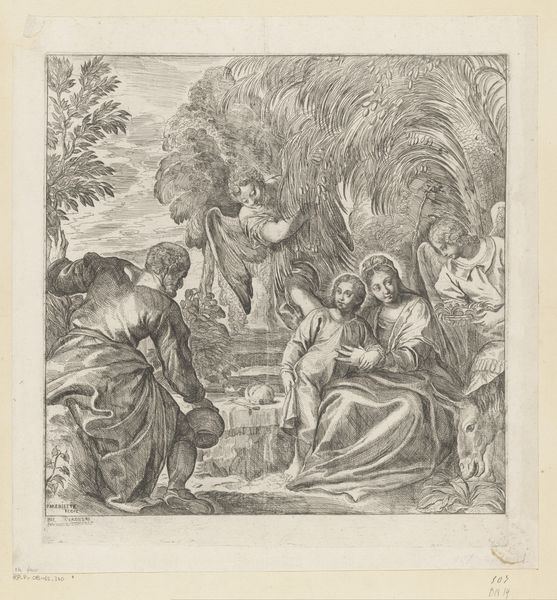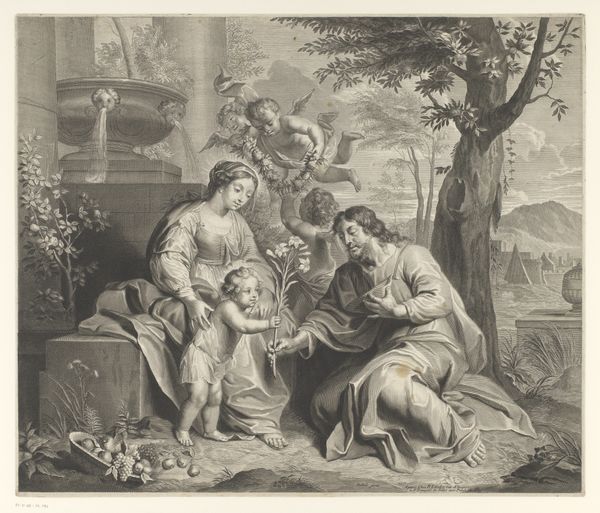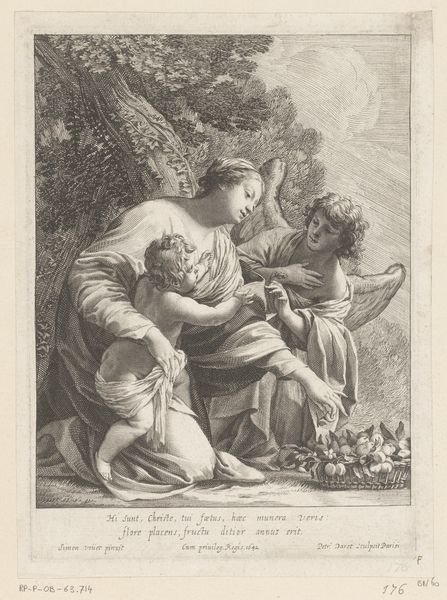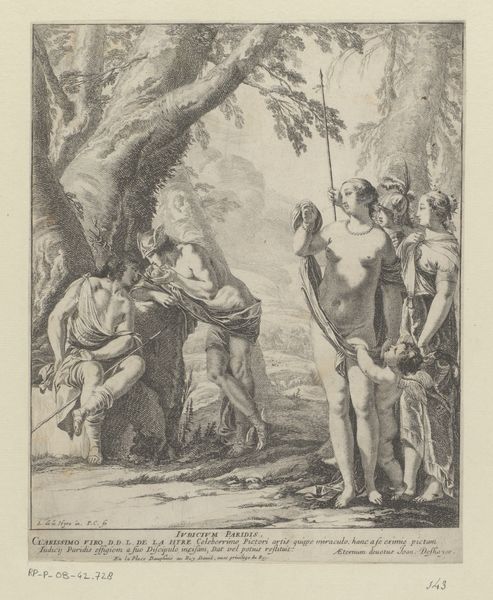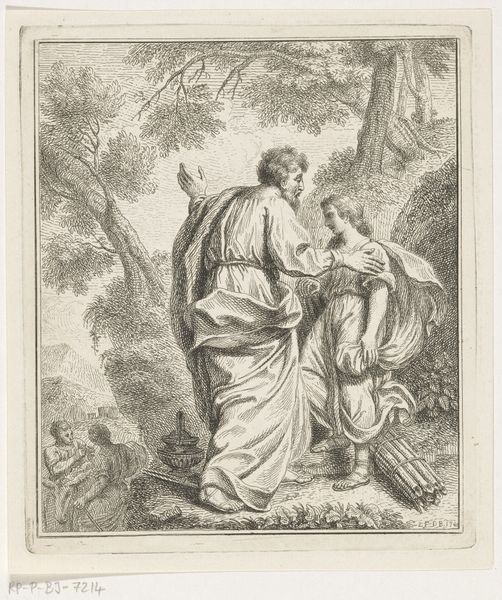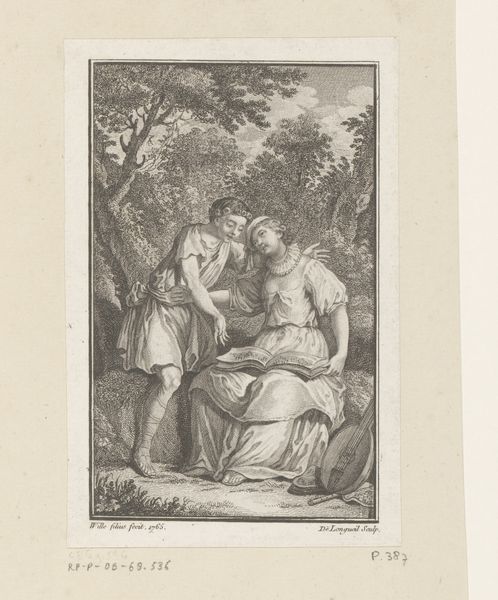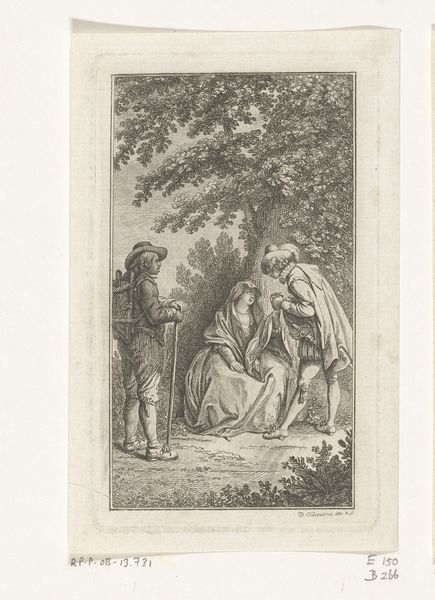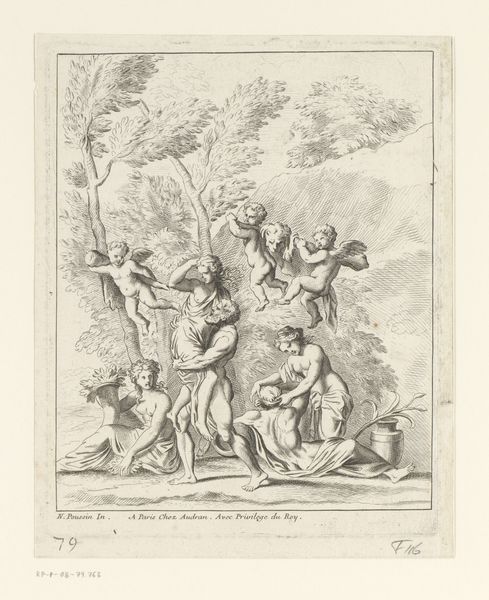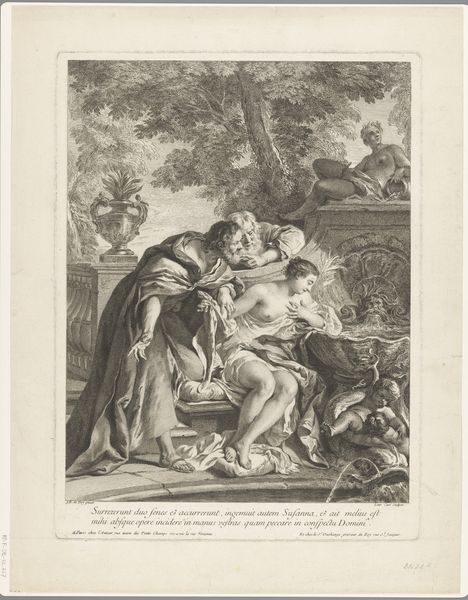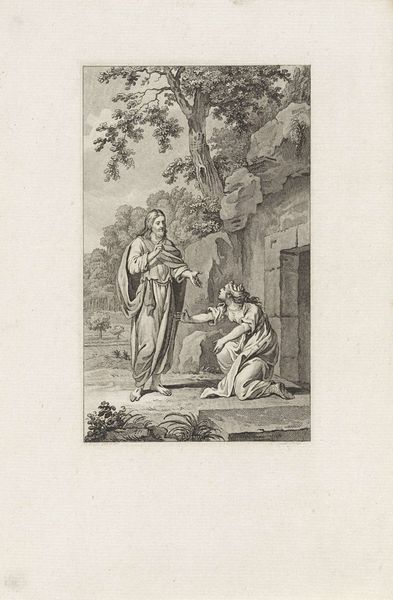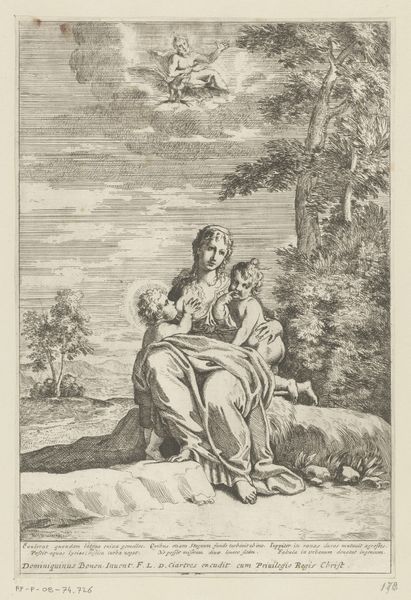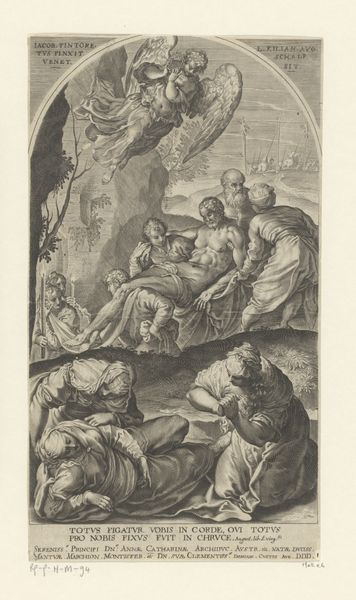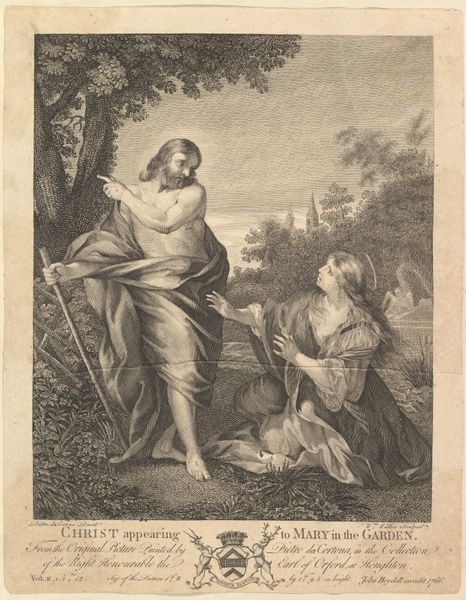
print, engraving
#
baroque
# print
#
old engraving style
#
figuration
#
history-painting
#
engraving
Dimensions: height 184 mm, width 143 mm
Copyright: Rijks Museum: Open Domain
Louis Fabritius Dubourg created this etching, Christus in gesprek met de Samaritaanse vrouw, sometime before 1775. The printmaking process is crucial to understanding its impact. An etching like this begins with a metal plate, likely copper, coated with a waxy, acid-resistant ground. The artist then draws through this ground with a sharp needle, exposing the metal. When the plate is immersed in acid, the drawn lines are etched into the surface. Ink is then applied, filling these grooves, and the plate is pressed onto paper, transferring the image. The resulting print bears the marks of this process: the crisp, precise lines, the subtle tonal variations achieved through varying the depth and density of the etching. Consider the labor involved – the meticulous preparation of the plate, the skilled drawing, the careful inking and printing. This wasn't just a picture; it was a product of craft, intended for wide distribution. It democratized religious imagery, bringing it out of the church and into the homes of ordinary people. In this way, printmaking allowed the image, and the ideas it carried, to circulate widely.
Comments
No comments
Be the first to comment and join the conversation on the ultimate creative platform.
